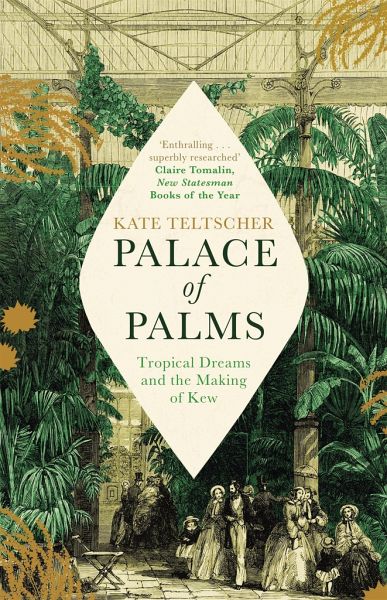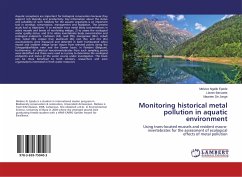
Palace of Palms
Tropical Dreams and the Making of Kew

PAYBACK Punkte
6 °P sammeln!
'A glorious green adventure story.' Ann Treneman, The Times 'Books of the Year''The most enthralling historical book I've read this year.' Claire Tomalin, New Statesman 'Books of the year'Daringly innovative when it opened in 1848, the Palm House in Kew Gardens remains one of the most beautiful glass buildings in the world today.Seemingly weightless, vast and yet light, the Palm House floats free from architectural convention, at once monumental and ethereal. From a distance, the crowns of the palms within are silhouetted in the central dome; close to, banana leaves thrust themselves against t...
'A glorious green adventure story.' Ann Treneman, The Times 'Books of the Year'
'The most enthralling historical book I've read this year.' Claire Tomalin, New Statesman 'Books of the year'
Daringly innovative when it opened in 1848, the Palm House in Kew Gardens remains one of the most beautiful glass buildings in the world today.
Seemingly weightless, vast and yet light, the Palm House floats free from architectural convention, at once monumental and ethereal. From a distance, the crowns of the palms within are silhouetted in the central dome; close to, banana leaves thrust themselves against the glass. To enter it is to enter a tropical fantasy. The body is assaulted by heat, light and the smell of damp vegetation.
In Palace of Palms, Kate Teltscher tells the extraordinary story of its creation and of the Victorians' obsession with the palms that filled it. It is a story of breathtaking ambition, of scientific discovery and, crucially, of the remarkable men whose vision it was. The Palm House was commissioned by the charismatic first Director of Kew, Sir William Hooker, designed by the audacious Irish engineer, Richard Turner, and managed by Kew's forthright curator, John Smith, who battled with boilers and floods to ensure the survival of the rare and wondrous plants it housed.
'The most enthralling historical book I've read this year.' Claire Tomalin, New Statesman 'Books of the year'
Daringly innovative when it opened in 1848, the Palm House in Kew Gardens remains one of the most beautiful glass buildings in the world today.
Seemingly weightless, vast and yet light, the Palm House floats free from architectural convention, at once monumental and ethereal. From a distance, the crowns of the palms within are silhouetted in the central dome; close to, banana leaves thrust themselves against the glass. To enter it is to enter a tropical fantasy. The body is assaulted by heat, light and the smell of damp vegetation.
In Palace of Palms, Kate Teltscher tells the extraordinary story of its creation and of the Victorians' obsession with the palms that filled it. It is a story of breathtaking ambition, of scientific discovery and, crucially, of the remarkable men whose vision it was. The Palm House was commissioned by the charismatic first Director of Kew, Sir William Hooker, designed by the audacious Irish engineer, Richard Turner, and managed by Kew's forthright curator, John Smith, who battled with boilers and floods to ensure the survival of the rare and wondrous plants it housed.













